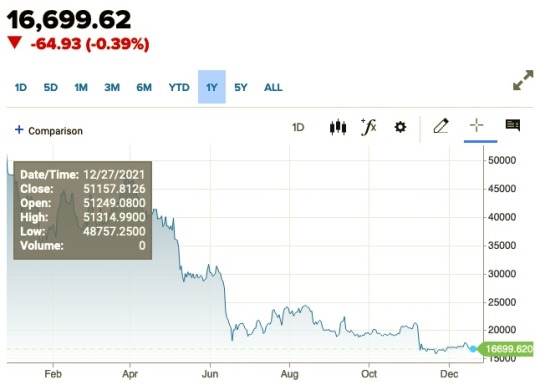#sherrod brown
Text

Sherrod Brown on derailment: "They never look out for their workers. They never look out for their communities. They look out for stock buybacks & dividends. Something's wrong with corporate America & something is wrong with Congress... listening too much to corporate lobbyists"
1K notes
·
View notes
Note
do you think sherrod brown gives good head?

I like to think so.
17 notes
·
View notes
Link
4 notes
·
View notes
Text
Sherrod Brown Must Go
Dyed in the wool anti-American democrat





Brown just repeats the same tired debunked gun grabber crap over and over. We have a chance to unseat this long time swamp dweller in 2024. Hopefully we will finally put this old donkey out to pasture.
2 notes
·
View notes
Link
A crypto ban would be difficult to enforce because it is internationally traded. But close scrutiny of the market is way overdue in the United States.
Some people constantly complain that the government needs to quit being a “nanny state”. Then when many of those people get in trouble for doing dumb things they then grumble that the government was not doing anything to prevent them from doing those dumb things in the first place.
Cryptocurrency is a dumb thing. It’s worth was always based on wishful thinking. I doubt if even half of the Americans who bought into crypto understand what it really is (”That’s some sort of computer money that always keeps rising in value – isn’t it?”).
Sen. Sherrod Brown (D-Ohio) on Sunday said federal agencies need to address the cryptocurrency market and “maybe” ban it after the high-profile collapse of cryptocurrency market FTX last month.
Brown, the chairman of the Senate Banking, Housing, and Urban Affairs Committee, told NBC’s “Meet the Press” moderator Chuck Todd that the Treasury Department and “all the different agencies” need to get together and assess any possible action related to the cryptocurrency market.
“Maybe banning it, although banning it is very difficult because it will go offshore and who knows how that will work,” Brown said.
[ ... ]
Brown on Sunday said the cryptocurrency market is a “complicated, unregulated pot of money” and the issue was much larger than FTX.“So we’ve got to do this right,” the senator said, adding that he has talked to the Treasury Department to do a related assessment across regulatory agencies.
Rule Number One of financial management: If something sounds too good to be true, it probably is.
Celebrity endorsements for things outside their areas of expertise should be taken with a kilogram of salt. Just because somebody wins an Oscar or an Olympic gold medal doesn’t make them Warren Buffett. Anybody giving out investment advice should prove that they know what they’re talking about. Getting a fee from FTX or some other crypto company does not constitute expertise.
In just under a year Bitcoin has dropped from over $51,000 to under $17,000.

The sounder investments tend to be dull ones which don’t get lots of hype and are held for a few years. And if they get proper scrutiny from regulators then people probably won’t end up losing 68¢ on the dollar in just one year.
Related...
Boondoggle of the Year: Cryptocurrency
Part of the problem is that crypto, as its critics have often noted, doesn’t actually do anything. Unlike many stocks, it does not pay dividends to its purchasers or represent an ownership stake in a company. Unlike bonds, it does not offer a fixed rate of return. And unlike actual currencies, cryptocurrency does not really work as a common medium of exchange. You can’t go down to your local grocery store and buy a loaf of bread with etherium or tether.
[ ... ]
Crypto is not real. Like the platinum coins in EverQuest, it has no intrinsic value and is untethered to anything but the shared belief by many people that it is actually worth something. (Neither is the dollar, crypto folks are often quick to note, but cryptocurrencies do not have 12 aircraft carriers and a nuclear arsenal and a system of courts that can enforce debts.) Aside from a few edge cases, crypto’s primary real-world utility is to do exactly what its early developers intended: evade government control. That does not mean living in some Matrix-esque cyberpunk dystopia; that means money laundering and sanctions evasion and other things that are generally considered crimes. And I haven’t even gotten to the ecological damage.
The writer of that article was holding back, Crypto is the Boondoggle of the Century.
2 notes
·
View notes
Text
The SSI Savings Penalty Elimination Act: An Update!
The US Senate bill that would let disabled & elderly people save more money while still keeping their Social Security benefits (and which is pegged to inflation so we don’t need to keep passing increases over and over!) aka baby’s personal favorite legislation of the 117th Congress, has a little update!
On 06/06/2022, the bill’s original sponsors, senators Sherrod Brown (OH Dem) and Rob Portman (OH Rep), were joined by two new sponsors, Senator Ron Wyden (OH Dem) and Senator Bill Cassidy (LA Rep). (Source: official congressional website for the SSI Savings Penalty Elimination Act, also known as S.4102) The more bipartisan support, the better a chance it has of actually passing, so I’m excited!
Right now, it’s still in the Senate Committee on Finance. Keep in mind that Sherrod Brown actually introduced this legislation (or something very similar) in a previous year and it didn’t go through, but now he has Portman on board and Portman is going to get replaced in 2022, probably by a far worse Republican (fucking JD Vance, a massive capitalist who thinks welfare is Bad), so the time to get this passed is now! We don’t know what the 2022 midterms will bring.
Here’s all the current Senate Committee on Finance members, with links to their Wikipedia page. If one of these belongs to you, now would be a great time to call or send a letter! If you enter in your state on the official Senate site it will tell you their official Senate contact info. If you'd like to read the full text of the bill, I recommend it, it's very short, probably shorter than this post! I don't have a head count of who supports it at this point, but it wouldn’t hurt to let them know that they should! (I mean, I’m guessing Elizabeth Warren’s on board, lmao, but.)
DEMOCRATS on the Senate Committee on Finance
Ron Wyden, Oregon, Chairman - new co-sponsor
Debbie Stabenow, Michigan
Maria Cantwell, Washington
Bob Menendez, New Jersey
Tom Carper, Delaware
Ben Cardin, Maryland
Sherrod Brown, Ohio - original co-sponsor
Michael Bennet, Colorado
Bob Casey, Pennsylvania
Mark Warner, Virginia
Sheldon Whitehouse, Rhode Island
Maggie Hassan, New Hampshire
Catherine Cortez Masto, Nevada
Elizabeth Warren, Massachusetts
REPUBLICANS on the Senate Committee on Finance
Mike Crapo, Idaho, Ranking Member
Chuck Grassley, Iowa
John Cornyn, Texas
John Thune, South Dakota
Richard Burr, North Carolina
Pat Toomey, Pennsylvania
Tim Scott, South Carolina
Bill Cassidy, Louisiana- new co-sponsor
James Lankford, Oklahoma
Steve Daines, Montana
Rob Portman, Ohio - original co-sponsor
Todd Young, Indiana
Ben Sasse, Nebraska
John Barrasso, Wyoming
#god don't you love inflation adjustments built into legislation? doesn't it make you downright giddy???#the ssi savings penalty elimination act#us senate#the state of the union#us politics#rob portman#sherrod brown#i will continue to hype this bill until it either passes or it dies#no because it's not too often you see a bill that would have a direct and immediate impact on someone you know. just like bam. right away.
11 notes
·
View notes
Link
Sen. Sherrod Brown (Ohio)
voting rights activist Stacey Abrams (Georgia)
Rep. Ro Khanna (California)
Gov. Gretchen Whitmer (Michigan)
former New Orleans mayor Mitch Landrieu (Louisiana)
4 notes
·
View notes
Link
1 note
·
View note
Note
Do you think Brown, Tester, and Manchin have good chances of winning reelection in 2024? If not, those that basically lock the Democrats out of the Senate or would they be able to make it up by winning other, current Republican seats?
Brown and Tester, yes. Machin, I'm starting to doubt. And no, it has nothing to do with Machin's conservative leanings--Tester is only slightly to the left as Manchin is and I think he's going to be re-elected. I'm not sure if Democrats can get a seat to make up for a Manchin loss--although Manchin losing would barley change anything, in all honesty. We'd go back to 50-50 like we had in 2021.
1 note
·
View note
Text
Anyone know where the SSI Restoration Act stands right now?
0 notes
Text







Lies repeated do not become truth.
3 notes
·
View notes
Text
youtube
David Bowie by The Sea Life, live for GemsOnVHS™
#music#the sea life#sea life#live music#live#live in studio#jon weiss#ryan witt#jordan sanders#payton brown#tommy sherrod#video#live session#session#gemsonvhs#gems on vhs#anthony simpkins#in the vcr#babe city#Youtube
33 notes
·
View notes
Text
By Jess Coleman
When, in December 2021, West Virginia Senator Joe Manchin announced he would vote “no” on President Biden’s signature legislative proposal, the Build Back Better Act, the reaction boiled down to: “Well, what did you expect?” After all, Manchin, despite being a Democrat, is from deep-red West Virginia, and politicians from deep-red states simply cannot vote in favor of major progressive policies championed by the leader of the Democratic Party. That’s just politics, dummy. That Biden and his fellow Democrats even tried was treated in some circles as painfully naïve: Unless Democrats learn that basic lesson and bring centrists into the fold, they’ll never achieve a vibrant, sustainable majority. Or so sayeth the conventional wisdom.
So when Manchin announced last week that he is considering leaving the Democratic Party to become an independent, his rationale was hardly difficult to predict. “The brand has become so bad,” he said, drawing on the oft-repeated talking point that the Democrats have lept too far left. In other words—and in contravention of all logic, given the results of the 2022 midterms—Manchin simply cannot in good conscience remain with a party that, in substance and style, provides no room for leaders seeking to appeal to a moderate, bipartisan electorate.
Don’t be fooled. Manchin’s charade is hardly one of principle. It’s one of total desperation.
There are no secrets about Manchin’s political situation at home. After being reelected in 2018 by just 3%, in a year in which Democrats vastly outperformed expectations nationally, Manchin has an enormous hill to climb with his reelection looming in 2024. But the West Virginia Senator doesn’t seem to have much interest in taking responsibility for the electoral crisis in which he has enmeshed himself. Instead, he’d like us to believe the political forces around him have simply left him no choice: Both sides have drawn too far to the extremes, leaving no political home for the critical mass of centrist West Virginians who sent him to Washington. Hence the need to chart a new path on his own.
The framing echoes a convenient perspective that is adored by the media and political establishment: Elections are not won with base voters, but through a small slice of persuadable, moderate swing voters, perpetually lurking just outside of frame. Democrats, in turn, need to have some Joe Manchins—those politicians who embody the voters who are key to electoral success—lying around to be taken seriously. The failure to keep these soi-disant moderate saviors on hand reveals a fundamental structural deficiency for the party writ large.
But if it’s true that Manchin is such a political genius—uniquely capable of surviving as a Democrat in a deep red state—you would expect that his victory is owed to a broad cross section of voters from a variety of political camps. Alas, that’s the complete opposite of what happened in 2018. According to CNN exit polls, Manchin garnered the votes of 64% of those who identify as moderates, and just 23% of conservatives. Those numbers are roughly in line with what New York Senator Kirsten Gillibrand achieved that same year: 70% and 18%, respectively. The reality is Manchin barely made it over the finish line in roughly the same way Democrats all around the country win their seats: by running up the numbers with voters on the political left—Manchin won 80% of self-identified liberals in 2018.
Indeed, as The New Republic’s Alex Pareene observed in 2021, Manchin is actually far more reliant on Democratic voters than many of his blue state counterparts. While someone like Gillibrand can afford to lose large swaths of Democrats in a state where they are in ample supply, Manchin needs to pull virtually every registered Democrat in his state to win. Against all logic, Manchin approached Biden’s first term as if the rules that governed his electoral hopes were precisely opposite to reality. Instead of rewarding his most loyal voters—dyed-in-the-wool liberal Democrats—by delivering for them in Washington, Manchin has spent his latest term going out of his way to alienate his base and position himself in a political no man’s land: personally steamrolling key Democratic priorities while siding with his party on most routine issues and appointments.
In short, Manchin made a bet. He believed he could rely on the support of Democrats and spent nearly all his time trying to appeal to a tiny, if not nonexistent, group of voters who are up for grabs and have no real allegiance to either of the two dominant political parties. It hasn’t worked out the way Manchin anticipated, and this is where he now finds himself—orchestrating a last-ditch, hopeless effort to create a new political reality from thin air.
It is possible Manchin never had a shot at reelection, had fortune and circumstance not permitted him to avail himself of 2018’s political trends, we’d already have a Republican holding that West Virginia Senate seat. But the broader lesson is crucial for those in the media and elected leadership who constantly insist that disregarding the Democratic base in service of pursuing the allegedly vast rewards that come from focusing solely on the views of the so-called centrist, swing voters is the only viable path to victory in American politics. Those who subscribe to this view should explain why the two most notable Democrats who aggressively pursued this approach—Kyrsten Sinema and Joe Manchin—are currently fighting for their political lives, while other red-state Democratic senators such as Sherrod Brown of Ohio and Jon Tester of Montana have consistently survived—and remain loyal to the party’s big priorities even when their electoral hopes face massive headwinds.
Mostly, we have to understand something simple about Manchin: We are not watching a political genius at work. He’s not on the verge of revealing a masterful plan to pull off another miracle in West Virginia. This is a desperate politician squirming for his political life after making a series of catastrophic political decisions. Manchin has hardly proven that the Democratic Party is mortally wounded due to its failure to leave room for the center left. All he’s done is reinforce a very basic rule in politics: Doing the opposite of what your voters want is an idiotic election strategy.
#us politics#news#the new republic#2023#west virginia#sen. joe manchin#biden administration#president joe biden#Democratic Party#Democrats#centrists#independents#2024 elections#sen. Kirsten Gillibrand#Alex Pareene#Sen. sherrod Brown#sen. Jon Tester#Jess Coleman#op eds
19 notes
·
View notes